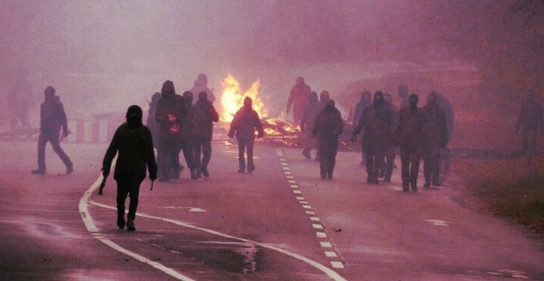
To Produce or Not to Produce
Class, Modernity and Identity
Class is a social relationship. Stripped to its base, it is about economics. It’s about being a producer, distributor or an owner of the means and fruits of production. No matter what category any person is, it’s about identity. Who do you identify with? Or better yet, what do you identify with? Every one of us can be put into any number of socio-economic categories. But that isn’t the question. Is your job your identity? Is your economical niche?
Let’s take a step back. What are economics? My dictionary defines it as: “the science of production, distribution, and consumption of goods and services.” Fair enough. Economies do exist. In any society where there is unequal access to the necessities of life, where people are dependent upon one another (and more importantly, institutions) there is economy. The goal of revolutionaries and reformists has almost always been about reorganizing the economy. Wealth must be redistributed. Capitalist, communist, socialist, syndicalist, what have you, it’s all about economics. Why? Because production has been naturalized, science can always distinguish economy, and work is just a necessary evil. It’s back to the fall from Eden where Adam was punished to till the soil for disobeying god. It’s the Protestant work ethic and warnings of the sin of ‘idle hands’. Work becomes the basis for humanity. That’s the inherent message of economics. Labor “is the prime basic condition for all human existence, and this to such an extent that, in a sense, we have to say that labor created man himself.” That’s not Adam Smith or God talking (at least this time), that’s Frederick Engels. But something’s very wrong here. What about the Others beyond the walls of Eden? What about the savages who farmers and conquistadors (for all they can be separated) could only see as lazy for not working?
Are economics universal? Let’s look back at our definition. The crux of economy is production. So if production is not universal, then economy cannot be. We’re in luck, it’s not. The savage Others beyond the walls of Eden, the walls of Babylon, and the gardens: nomadic gatherer/hunters, produced nothing. A hunter does not produce wild animals. A gatherer does not produce wild plants. They simply hunt and gather. Their existence is give and take, but this is ecology, not economy. Every one in a nomadic gatherer/hunter society is capable of getting what they need on their own. That they don’t is a matter of mutual aid and social cohesiveness, not force. If they don’t like their situation, they change it. They are capable of this and encouraged to do so. Their form of exchange is anti-economy: generalized reciprocity. This means simply that people give anything to anyone whenever. There are no records, no tabs, no tax and no running system of measurement or worth. Share with others and they share in return. These societies are intrinsically anti-production, anti-wealth, anti-power, anti-economics. They are simply egalitarian to the core: organic, primal anarchy.
But that doesn’t tell how we became economic people. How work became identity. Looking at the origins of civilization does. Civilization is based off production. The first instance of production is surplus production. Nomadic gatherer/hunters got what they needed when they needed it. They ate animals, insects, and plants. When a number of gatherer/hunters settled, they still hunted animals and gathered plants, but not to eat. At least not immediately.
In Mesopotamia, the cradle of our now global civilization, vast fields of wild grains could be harvested. Grain, unlike meat and most wild plants, can be stored without any intensive technology. It was put in huge granaries. But grain is harvested seasonally. As populations expand, they become dependent upon granaries rather than what is freely available. Enter distribution. The granaries were owned by elites or family elders who were in charge of rationing and distributing to the people who filled their lot. Dependency means compromise: that’s the central element of domestication. Grain must be stored. Granary owners store and ration the grain in exchange for increased social status. Social status means coercive power. This is how the State arose.
In other areas, such as what is now the northwest coast of the United States into Canada, store houses were filled with dried fish rather than grain. Kingdoms and intense chiefdoms were established. The subjects of the arising power were those who filled the storehouses. This should sound familiar. Expansive trade networks were formed and the domestication of plants and then animals followed the expansion of populations. The need for more grain turned gatherers into farmers. The farmers would need more land and wars were waged. Soldiers were conscripted. Slaves were captured. Nomadic gatherer/hunters and horticulturalists were pushed away and killed. Continue reading “To Produce or Not to Produce – Kevin Tucker”
